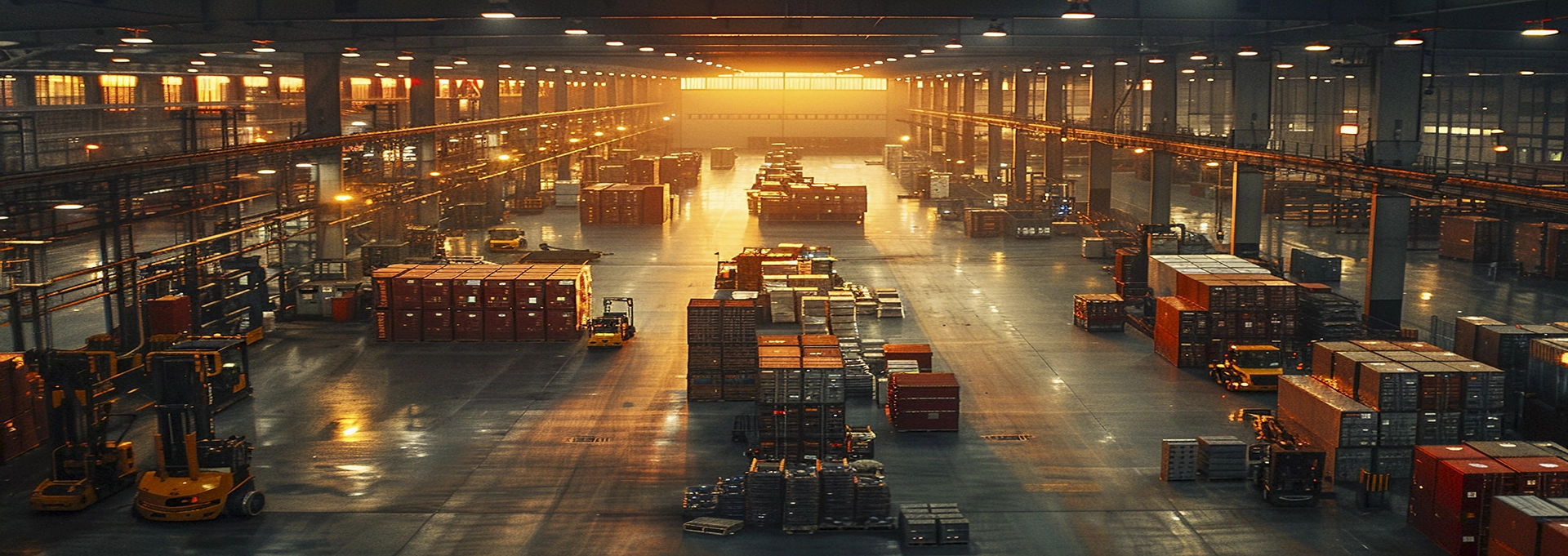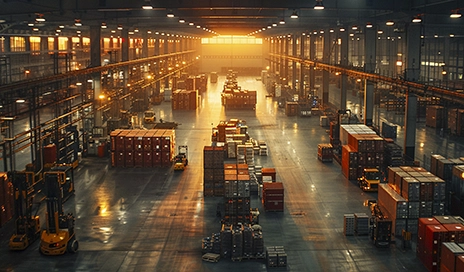Supply chains are the heart of every business. They are complex, involve multiple moving parts that need to work in tandem, and their health is crucial for sustained business growth. Needless to say, CIOs and CTOs across industries place building robust and resilient supply chains on top of their digital transformation agenda. This is where AI has emerged as a game changer, and I believe that AI-led solutions can fundamentally change how we tackle the evolving supply chain challenges.
Marking a paradigm shift in supply chain operations
Traditional supply chain management was based on hindsight. Businesses responded to changing market conditions after the fact. The reactive decision-making was counterproductive and often led to misallocation of resources, delayed timelines, and wasted capital.
Today, we not only have the technology but the skills and experience to be proactive. With AI, we can anticipate and respond to changes before they impact operations by completely transforming two core aspects of any supply chain - processes and capabilities.
A supply chain is an interconnected web of multiple processes - ideation, designing, prototyping, production, procurement, and more. By using AI, each of these processes can be improved. We can design better products based on customer feedback, automate the incorporation of feedback into prototyping, and even predict demand based on data. In doing so, we trigger a compounding effect across the value chain and achieve significantly enhanced outcomes.
While processes represent the "what" of supply chain management, capabilities define the "how well." Improved processes need to be augmented with corresponding capabilities to drive higher efficiencies. For example, if we can accurately predict demand fluctuations, we can plan resource allocation accordingly, reduce inventory, and save costs. In another instance, we can analyze procurement data to gain insights into eco-friendly suppliers to boost our sustainability initiatives.
AI solutions of today cater to both these aspects of the supply chain, turning the traditional static management methods into a more dynamic, predictive, and prescriptive practice. Let’s take a closer look.
Elevating supply chain processes
1) Product design and development
As the first step toward creating a differentiated experience, AI can be instrumental in analyzing customer preferences, market trends, and feedback. It can collate data from multiple sources, deliver insights into customer sentiments, and prompt inputs that can delight customers. What does that translate to? Significantly shorter development cycles, faster time to market, and a tangible edge over competitors in terms of product quality.
2) Procurement and logistics
An AI-led assessment of supplier data across historical performance, compliance records, and cost efficiency can improve supplier selection. The analysis of transportation routes can optimize delivery times and costs. Together, they constitute the two ends of a supply chain. With AI woven into the processes, businesses can gain real-time insights to generate the most viable procurement and delivery options. The result? Mitigation of supply risks, enhanced warehouse operations, reduction in operational costs, and highly reliable value chain.
3) Asset management and resource optimization
Managing assets like machinery, equipment, and vehicles while optimizing resources such as raw materials, labor, and energy can significantly impact operational efficiency and profitability. With AI, a business can accurately identify how well these assets are being utilized and simultaneously analyze asset degradation for maintenance. This information can help a business allocate resources intelligently, optimize energy consumption, and enhance the lifespan of diverse assets. It leads to long-term cost savings, minimal downtimes, and resilience against market disruptions.
These are just some examples of the direct positive impact AI-led solutions can have on the supply chain processes. But this is not enough. Decision-makers need robust capabilities like demand forecasting, improved visibility, risk mitigation, sustainability tracking, and more to drive uninterrupted business growth.
Building robust capabilities
1) Demand forecasting
Demand forecasting isn’t just about ensuring product availability to customers, it also includes resource planning, inventory management, and scaling production to name a few. AI algorithms analyze historical data, market trends, and even weather patterns to accurately predict demand. It can continuously learn from patterns and adjust inventory levels automatically. Essentially, it transforms demand forecasting from an educated guess into a science, making predictability your differentiator.
2) Visibility and agility
To effectively manage a supply chain, we need granular visibility across each of its moving parts. We need a real-time view of inventory levels, shipment status, supplier performance, etc., to orchestrate the collaboration between different teams. With AI capabilities in place, it is possible to gain such end-to-end visibility and also automate the collaboration between different processes. For example, if we know that a certain spare part may get delayed in being delivered, we can build a system that immediately orders the same from the next best supplier. A supply chain with such systems in place can be extremely agile and highly resilient.
3) Addressing the core sustainability challenges
AI empowers businesses to create sustainable supply chains by addressing the three core pillars of economy, ecology, and equity. It drives economic efficiency through advanced demand forecasting, optimized logistics, and reduced waste, enabling cost savings and profitability. AI promotes ecological sustainability by improving resource utilization, minimizing emissions through smart routing, and enabling circular supply chain models. When it comes to equity, AI enhances transparency, ensuring fair practices and ethical sourcing while enabling equitable access to resources. By integrating AI into supply chain operations, businesses can balance profitability with environmental and social responsibility, fostering long-term sustainability.
As is clear from the above-mentioned examples, AI integration into supply chain applications isn't just a technological upgrade – it's a fundamental reimagining of how modern supply chains operate. SAP, with its diverse solutions like Product Lifecycle Costing, Enterprise Portfolio, Project Management, and Integrated Business Planning (IBP), is enabling companies to leverage AI in its most optimized form to elevate outcomes at every stage of the supply chain in real-world conditions.
Key Takeaway
For business leaders, the message is clear: AI-powered supply chain transformation isn't just about staying competitive – it's about being future-ready. It's about enhancing the processes and building robust capabilities that help businesses be resilient, agile, efficient, and highly productive. Numerous success stories across industries demonstrate how AI is not just promising results but delivering real-world impact now. Moving forward, as the technology evolves, businesses will be able to unlock new levels of competitive advantage with AI, paving the way for future-ready supply chains.
Let’s start a conversation








